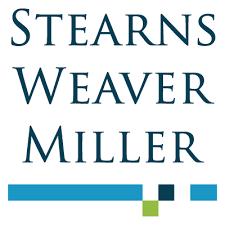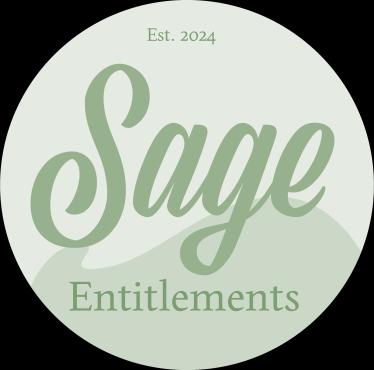Obtaining & Defending Land Use Approvals
Law Credit September 4, 2024 | 10:30am


Law Credit September 4, 2024 | 10:30am







The information provided in this presentation does not, and is not intended to, constitute legal advice; it is for general informational purposes only. Information in this presentation may quickly become outdated. Viewers of this presentation should contact their attorney to obtain advice with respect to any particular matter. No one should act or refrain from acting on the basis of information in this presentation without first seeking legal advice from counsel. Only your attorney can provide assurance that the information contained in this presentation, as well as the reader's interpretation of that information, is appropriate to any particular situation.

▪ Considerations in preparing development applications
▪ Types of Local Government Approvals
▪ Options for appealing local government decisions
▪ Rules of evidence and practical applications to discovery, depositions & trial

Get to know the client & assess
• Ultimate goals
• Business considerations
• Schedule constraints
• Flexibility and temperament
• Expectations
Are there opportunities to reconcile the client's private goals and the public interest?
Start with thinking through major issues
• Transportation
• Natural Resources
• Drainage
• Compatibility
• Stakeholders
Develop a firm understanding of relevant laws and regulations
• Comprehensive Plan
• Land Development Regulations
• State & Federal Requirements
• Judicial & Administrative Decisions
• Similar projects & other precedents
Prepare the application with the following in mind:
• State of title and relevant contracts
• Agency files on the property
• Application requirements
• Meetings with Staff
• Ensure decision-makers know what you are doing
Consider the possibility of litigation, even if it seems unlikely
Three types of decisions: Legislative, Executive, & QuasiJudicial
• Depends on the character of the hearing – is the decision based on a noticed hearing and contingent on evidentiary showing made at the hearing? De Groot v. Sheffield, 95 So. 2d 912 (Fla. 1957).
• Is the decision a formulation of a general rule of policy, or application of a general rule of policy? Bd. of County Comm’rs v. Snyder, 627 So. 2d 469 (Fla. 1993).
• Does the decision impact a large portion of the public or a small number of persons or properties?
The type of decision is critical because it controls:
• Burden of proof;
• Process due; and
• Forum and standard of review.


• Involves policy formation
• Examples: Comprehensive plan adoption & amendment
• Standard of Review: Fairly Debatable
Highly deferential standard requiring approval of the action if reasonable persons could differ as to its propriety. MartinCountyv.Yusem , 690 So. 2nd 1288 (Fla. 1997)
• Burden of Proof: challenger must show decision was arbitrary and capricious.
• Review of Decision: judicial review as declaratory judgment or injunctive relief

• Requires less process than quasijudicial
• Parties do not have a right to cross examination
• Does not provide the same level of process protection
• Standard afforded to local government is more deferential
• Decision is reviewed de novo


• Involves decisions by local government officials administering local code.
• Examples:
o Granting a building permit to repair damage from a hurricane. CityofSt.PeteBeachv.Sowa,4 So. 3d 1245 (Fla. 2d DCA 2009).
o Denial of a permit application for an "adult oriented business." PleasuresIIAdultVideov.CityofSarasota, 833 So. 2d 185 (Fla DCA 2002).
• Cannot be reviewed by petition for writ of certiorari. LeeCountyv.Harsh,44 So. 3d 239 (Fla. 2d DCA 2010).
• Local codes may provide for administrative appeals to review decision.
• Involve the application of existing policy to a specific development application
• Examples: rezonings, variances, subdivision plats, and site plans (with some exceptions).
• Burden of proof: applicant has the burden of demonstrating compliance with all applicable criteria for approval by competent substantial evidence.
o Burden then shifts to local government to justify denial
o Examples:
▪ Rezoning – local government must show that maintaining the existing zoning serves a legitimate public purpose of the denial is not arbitrary, discriminatory, or unreasonable
▪ Special Exception – local government must show the requested exception does not meet criteria and is averse to public interest.

• What is competent substantial evidence?
o "Evidence sufficiently relevant and material to the ultimate determination that a reasonable mind would accept is as adequate to support the conclusion reached." HialeahGardensv.MiamiDadeCharterFound. , 857 So. 2d 202, 204 (Fla. 3d DCA 2003) (quoting DeGrootv.Sheffield , 95 So. 2d 912, 916 (Fla. 1957)).
o Evidence that "merely creates a suspicion" or "gives equal support to inconsistent inferences" does not meet the competent substantial evidence threshold. Dept.OfHighwayandMotor Vehiclesv.Trimble,821 So. 2d 1084, 1087 (Fla. 1st DCA 2002).

• Examples of competent substantial evidence
o Application and applicant testimony. RiversideGroup, Inc.V.Smith, 497 So. 2d 988, 990 (Fla. 5th DCA 1986)
o Professional staff reports. PalmBeachCountyv.Allen MorrisCo.,547 So. 2d 690, 694 (Fla. 4th DCA 1989).
• What is not considered competent substantial evidence?
o Generalized statements in opposition. Trimble,821 So. 2d at 1087.
o Untruthful or nonexistent evidence. Wigginsv.Fla. Dept.OfHighwaySafetyandMotorVehicles,209 So. 3d 1165, 1173 (Fla. 2017)
o Flawed evidence. FirstBaptistChurchofPerrinev. Miami-DadeCounty,768 So. 2d 1114, 1116 (Fla. 3d DCA 2000).

• Adequate Notice
• Opportunity to be Heard
• Fair and impartial decision-maker
• Ex parte communications
• Decision based on correct application of the law and competent substantial evidence in the record

• Reviewed in circuit court by petition for writ of certiorari.
o Limited to whether there was competent substantial evidence, whether procedural due process was afforded, and whether essential requirements of law were observed.
• Review of whether a "development order" is inconsistent with the local comprehensive plan must be brought under section 163.3215, Florida Statutes – review is de novo.

• Evidence must be submitted before the decision is issued
o Be sure to address every applicable criterion for approval!!
o Provide hard copies of all electronic presentations and submit to cler for inclusion in the record
▪ Do the same with any supplemental material distributed or referenced during the presentation
• The part seeking to challenge must preserve the record. Confirm there will be a court reporter or hire one independently
• Issues must be raised to be preserved. If there are procedural or substantive deficiencies, raise them on the record or risk waiving them for appeal



o Fla. R. Civ. P.1.280(b): "Parties may obtain discovery regarding any matter, not privileged, that is relevant to the subject matter of the pending action..."
o Does not matter that the information sought will be inadmissible at trial if the information appears reasonably calculated to lead to discovery of admissible evidence.

• Section 90.502, F.S.: Communications between a lawyer and client are confidential if not intended to be disclosed to third persons other than:
o Those to whom disclosure is made in furtherance of the rendition of legal services to the client
o Those reasonably necessary for the transmission of the communication.
• Application to entities (i.e. businesses, corporations): communications between general counsel and employees are privileged under certain circumstances.
• Application to governmental entities: privilege applied only to oral communications unless another exemption applies. Don't forget about the Sunshine Law!

• Fact – protects information related to the case and gathered in anticipation of litigation
• Opinion – protects mental impressions, conclusions, opinions, or legal theories of an attorney or other representative.
• Application to governmental entities: public records law provides a limited exception for opinion work product:
o Prepared by or at attorney's direction, reflects mental impressions, prepared for or in anticipation of litigation.
o Only applies until litigation is over.
o Not waived by release to another party.
• Competency
• Who is the client?
• Scope of representation
o Testifying or non-testifying?
o Will you produce a report?

• If you are not testifying – facts known or held are deemed work product and are only discoverable by showing of exceptional circumstances. Rocca v. Rones, 125 So. 3d 370 (Fla. 3d DCA 2013).
• Testifying expert should expect expert interrogatories.
o Identify who the part expects to call as an expert at trial.
o Subject matter on which the expert is expected to testify.
o Substance of the facts and opinions to which the expert is expected to testify.
o Summary of the grounds for each opinion.
• File documents and communications can be discovered through requests for production or through a subpoena duces tecum for deposition.
• Work with counsel on gathering and reviewing documents!
• Avoid creating multiple versions of your report
• Discuss changes with counsel over the phone or in person
• Think before sending written communications, including emails and text messages!
• It can be valuable to document certain matters and issues in writing. Discuss with legal team.
• Remain professional in your communications –assume they will end up in front of a judge or read aloud in a deposition.


• Purpose is typically to understand and test the opinions that will be offered at trial
• Cardinal rule – Tell the Truth!
• Listen to questions carefully and only offer answers to the questins being asked
• Don't assume you know where the examiner is going with the questions
• Don't be in a rush
• Don't be afraid to ask for clarification
• Don't be afraid to concede on obvious points
• Rely on counsel to object and instruct you not to answer – otherwise, answer and tell the truth!

• Don't talk over the examiner
• Don't be disrespectful, even if the examiner is
• If the deposition is virtual, be aware of whether your video and microphone are on, especiallyd uring breaks!
• If the deposition, hearing or trial is virtual, TEST your equipment ahead of time!
you?

• General questions about your education and employment background
• Questions about other cases you've worked on
• Questions about whether you've ever been accepted as an expert and whether your opinion has ever been excluded
• Understand the limits of your expertise and the role of other experts
• Substance of your opinions and bases
• Hypotheticals
• Purpose is different from deposition testimony –need to make evidentiary record and persuade the trier of fact
• Scope of testimony is more limited – dealing with admissibility standards instead of broad discovery standards (reasonably anticipated to lead to discovery of admissible evidence)
• Prepare for presentation of direct testimony with counsel
• Anticipate cross examination will test evidence
• Presence of judge or hearing officer
• Know your audience!






